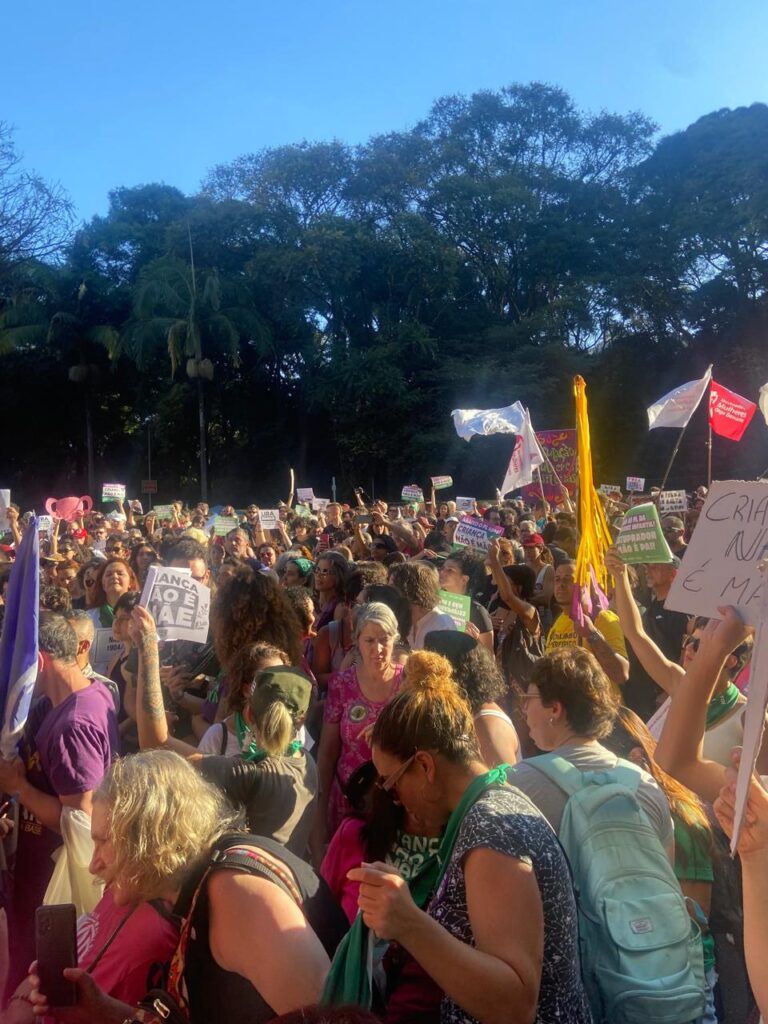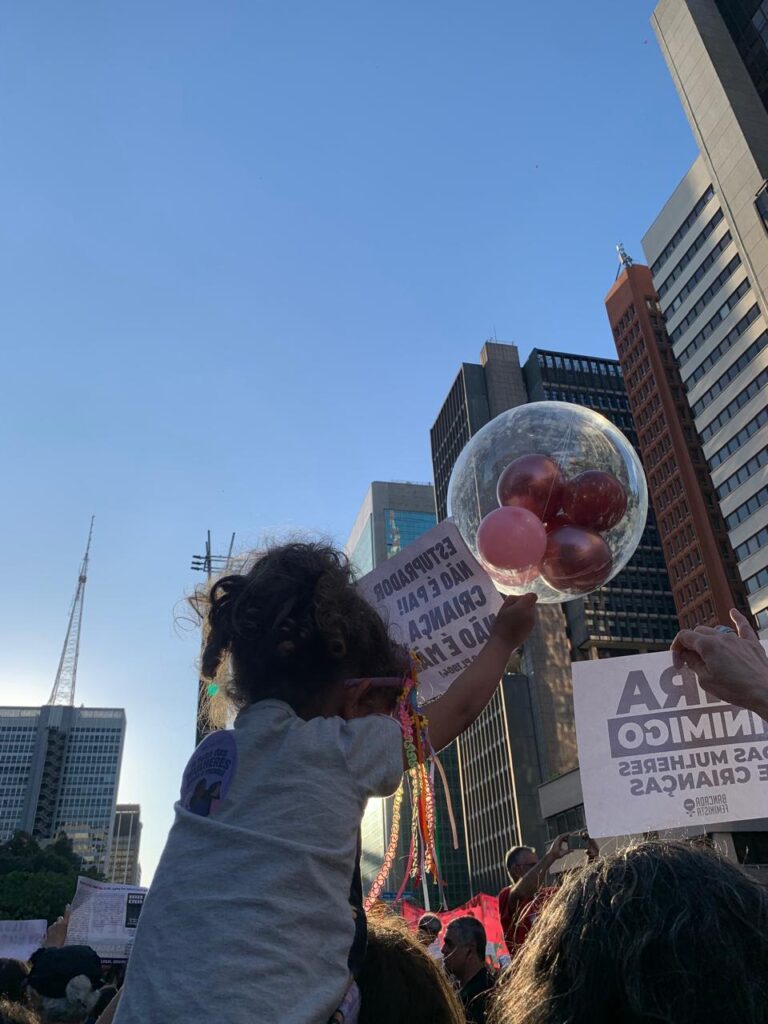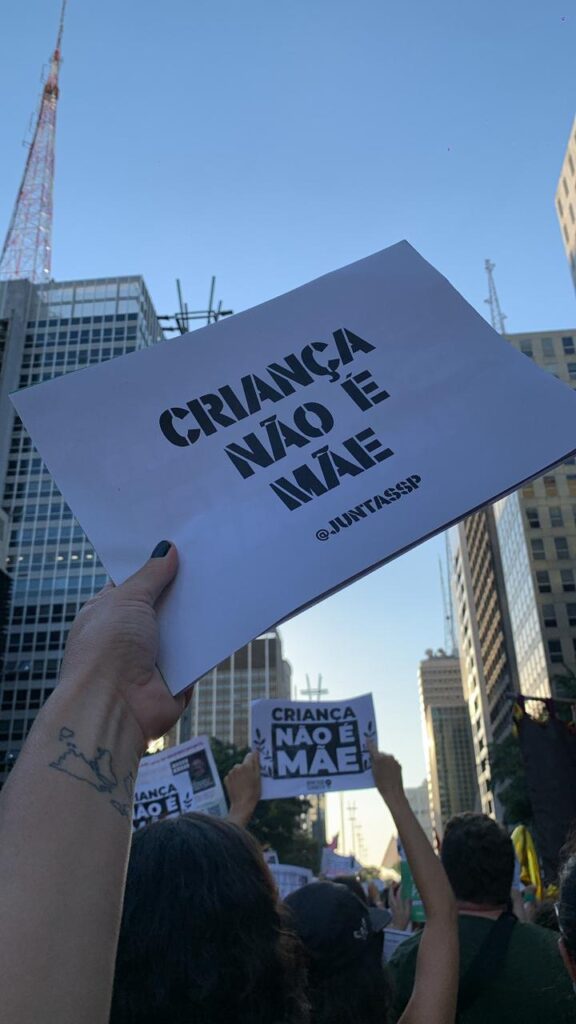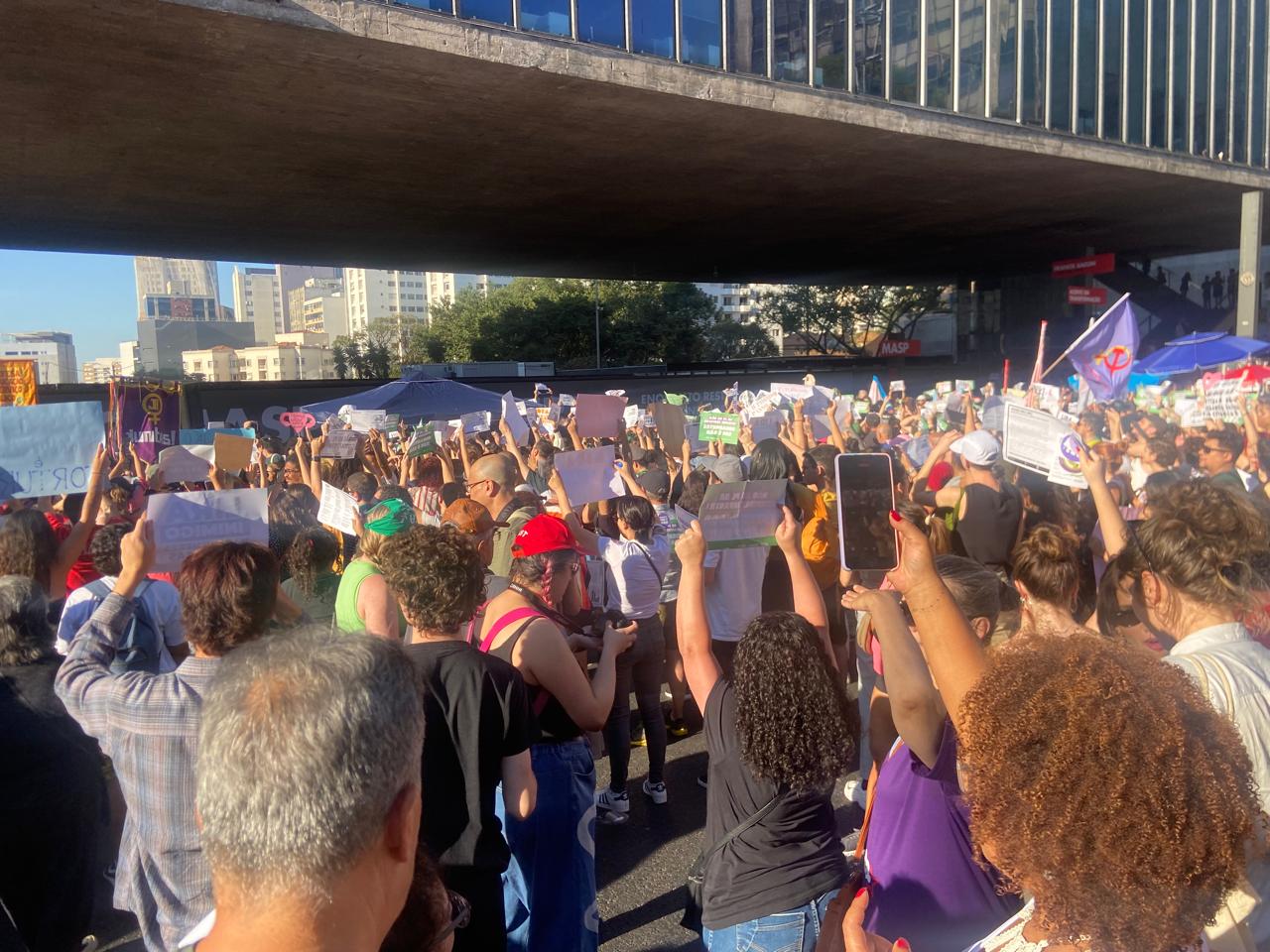São Paulo, Brazil – Thousands of Brazilians took to the streets in São Paulo and Rio de Janeiro to protest proposed legislation that equates abortion with homicide and restricts legal abortion to 22 weeks of gestation, including in cases of rape. The proposal was approved last week for urgent discussion in the Chamber of Deputies, Brazil’s lower house.
According to Brazilian law, abortion is currently legal in three circumstances: cases of rape, when the mother’s life is at risk, or when the fetus is anencephalic. The proposed bill aims to limit the period for these abortions to 22 weeks, whereas the current law allows them at any stage of pregnancy.
If an abortion occurs after this 22-week period, the woman could be prosecuted and convicted of murder, with potential sentences ranging from six to 20 years in prison. The crime of rape in Brazil carries a sentence of six to 12 years. This means that a woman convicted of homicide for an abortion — even in rape cases — could receive nearly twice the sentence of the rapist.
Read more: Brazilian Congress approves discussing bill that equates abortion with homicide
The proposal sparked a massive backlash, mainly on social media, but also with protestors gathering in the streets. Social movements and NGOs defending women’s rights came together and launched the “children are not mothers” campaign, with a petition to put pressure on congressmen, which already has more than 343,000 signatures.
The campaign organizers say that if the law is approved, children will be disproportionately impacted. They argue that in cases of sexual abuse, it often takes longer to discover or identify the pregnancy, making it difficult to meet the 22-week gestation limit.
According to the Brazilian Public Security Forum, an NGO that compiles crime data, 74,930 people were raped in Brazil in 2022, the highest number ever recorded in the country’s history. Of this total, 60% were no older than 13 years.
In 2019, Brazil’s public health system (SUS) recorded 72 legal abortions in children and teenagers under 14 years old. Also, SUS data from 2013 to 2022 shows that, on average, over 21,000 girls under 14 gave birth each year, with more than 70% being black.

Protest in São Paulo
In São Paulo, the protest took place on Saturday on Avenida Paulista, one of the city’s main thoroughfares.
Left-wing congresswoman Sâmia Bonfim, one of the strongest opponents of the bill, attended the protest and spoke with Brazil Reports. She said that it is through popular pressure that the proposal will be defeated.
“The congressmen underestimated the strength of the women’s movement. They thought they could pass a criminal bill in the dark and in silence. But we have a strong history of fighting, and this is just the beginning; there will be a lot of mobilization until the proposal is shelved,” she said.
Nursery school teacher Maria Teresa da Costa said that the bill is a setback for women’s rights and that Congress should not force a woman to give birth to a baby resulting from rape. “How many times does a woman have to be violated and re-victimized in this country? We will not leave the streets until Congress rejects this proposal,” she told Brazil Reports.
Designer Luísa Andrade also attended the protest and brought her eight-year-old daughter. She said to Brazil Reports she wants the girl to learn to fight for her rights from an early age. “Everything is more difficult for women, and there’s always someone trying to take our rights away. It’s important to teach the new generation not to accept setbacks.”


“Child is not a mother” poster. Image credit: Brazil Reports
Speaker of the chamber criticized
One of the main targets of all the protests was the Speaker of the Chamber, Arthur Lira, who is responsible for putting bills up for vote. Lira is responsible for deciding to vote on the urgency of the abortion bill last week, which means it could be put to a vote in Congress without having to go through the normal committee process.
“Abortion stays, Lira goes,” shouted the protestors on Avenida Paulista, who also carried signs calling for the Speaker of the Chamber to step down. On social media, Lira also faced a lot of criticism and he is already showing signs that he will not put the proposal to a floor vote anytime soon.
The popular reaction is also reflecting on other centrist deputies who initially indicated support for the bill signed by 32 conservative and Christian deputies linked to the right-wing party of former President Jair Bolsonaro, the Liberal Party (PL). But now some centrist deputies say they have no commitment to the approval, according to the local press.
President Luiz Inácio Lula da Silva, who was attending the G7 summit in Italy last week, called the bill “crazy.” His Minister of Human Rights and Citizenship, Silvio Almeida, also criticized the measure, saying, “It is hard to believe that Brazilian society, with the numerous problems it has, is currently discussing whether a raped woman and a rapist have the same value under the law.”










